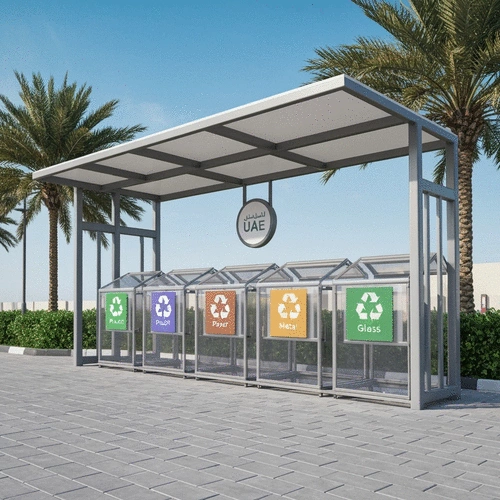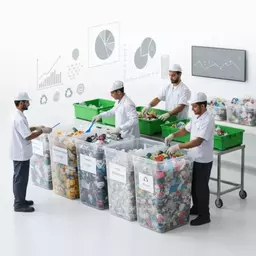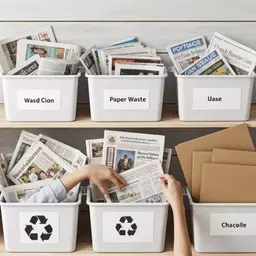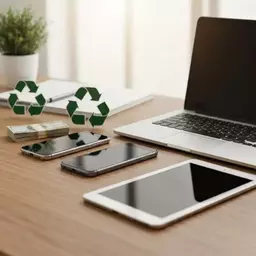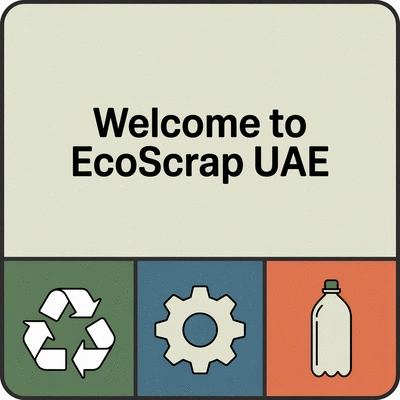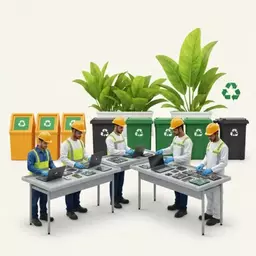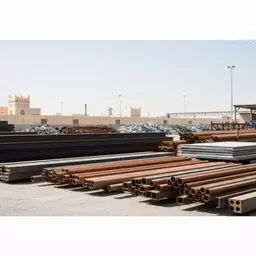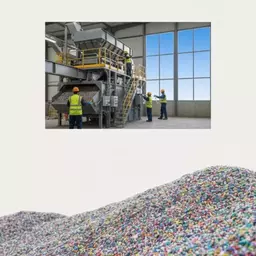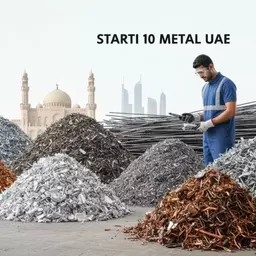What if every piece of waste you throw away could be transformed into something valuable? In the UAE, recycling isn't just a responsibility—it's a vital part of our journey toward sustainability. Understanding the regulations around recycling empowers us to contribute meaningfully to a cleaner environment.
What You Will Learn
- The UAE's recycling policies aim to reduce landfill waste and promote sustainable practices.
- Compliance with recycling regulations is crucial for environmental stewardship and avoiding fines.
- The UAE Ministry of Climate Change and Environment plays a key role in shaping effective recycling strategies.
- Community engagement in recycling initiatives fosters a collective commitment to sustainability.
- Creating a recycling compliance checklist can simplify your efforts and enhance accountability.
UAE Recycling Policy Framework
The UAE has established a comprehensive framework to promote sustainable waste management. The visual below highlights the key objectives and responsible entities within this framework.
Key Objectives of Recycling Policies
- Minimize environmental impact
- Enhance public awareness
- Encourage sustainable practices
- Promote resource recovery
Role of Ministry of Climate Change and Environment
- Establish national targets
- Promote awareness campaigns
- Monitor compliance
- Enforce regulations
Importance of Compliance
- Reduces landfill waste
- Conserves natural resources
- Enhances community health
- Fosters environmental stewardship
Key Takeaways for Action
- Verify material acceptance
- Proper waste segregation
- Stay updated on schedules
- Engage with local programs
Understanding Recycling Regulations in the UAE: An Overview
Recycling is not just a trend; it's a necessity! At EcoScrap UAE, we believe that understanding recycling regulations plays a crucial role in fostering a cleaner environment. The UAE has established a comprehensive framework to promote sustainable waste management, ensuring that everyone can contribute to a greener future. For a detailed look at the regulatory landscape, you can refer to the Law No. (18) of 2024 Regulating Waste Management in Dubai, which outlines the legal requirements for waste management.
Here’s a quick breakdown of the key objectives behind these recycling policies:
- Encouraging responsible waste disposal
- Reducing landfill waste and pollution
- Promoting resource recovery and recycling
- Fostering community engagement in sustainability
These objectives aim to create a culture of recycling that benefits both the environment and the economy. By aligning with these goals, we can all participate in the transition towards a circular economy.
Key Objectives of Recycling Policies in the UAE
The UAE's recycling policies are structured around several core objectives that guide their implementation. These include:
- Minimizing environmental impact through reduced waste generation.
- Enhancing public awareness about the importance of recycling.
- Encouraging businesses and individuals to adopt sustainable practices.
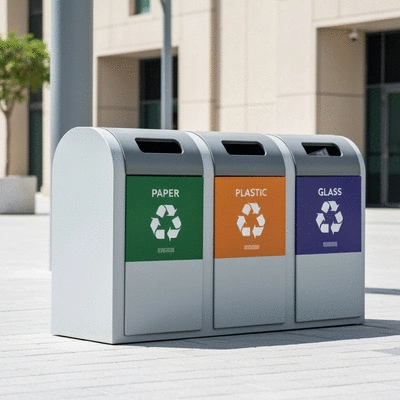
As a passionate advocate for sustainable practices, I see these objectives as a roadmap to achieving a cleaner, greener UAE. It's not just about compliance; it’s about creating a culture of sustainability that everyone can embrace!
Importance of Compliance with Recycling Rules
Compliance with recycling regulations is vital for several reasons. Firstly, it ensures that we are all playing our part in environmental stewardship. Non-compliance can lead to hefty fines, but more importantly, it can harm our planet. The Federal Law No. (12) of 2018 regarding Integrated Waste Management further emphasizes the legal framework for waste management across the UAE.
Here are a few reasons why abiding by these rules is essential:
- Protects the environment by reducing landfill waste.
- Conserves natural resources through effective recycling.
- Enhances community health and quality of life.
By following these guidelines, we contribute to a sustainable future and inspire others to do the same. Remember, every small action counts!
Role of the UAE Ministry of Climate Change and Environment in Recycling Policies
The UAE Ministry of Climate Change and Environment plays a pivotal role in shaping the country's recycling landscape. They are responsible for developing policies and regulations that guide both individuals and businesses in their recycling efforts. Their initiatives include comprehensive strategies like the Single-Use Plastic Policy, which aims to reduce plastic waste and promote sustainable alternatives.
Some of their key responsibilities include:
- Establishing national recycling targets and goals.
- Promoting public awareness campaigns about recycling.
- Monitoring compliance and enforcing regulations.
At EcoScrap UAE, we work closely with the Ministry’s guidelines to ensure that our services not only comply with regulations but also support their vision for a sustainable UAE. This collaboration helps drive innovation and fosters a culture of recycling in our communities.
Pro Tip
To maximize your recycling efforts, consider joining a local recycling group or initiative. Not only will you gain valuable insights and tips from like-minded individuals, but you’ll also create a sense of community around sustainability. Together, you can motivate each other and share best practices for effective recycling!
Summarizing the Importance of Recycling Regulations in the UAE
Recycling regulations play a crucial role in creating a sustainable future for the UAE. By following these rules, both businesses and individuals can contribute to a healthier environment. Understanding these regulations is the first step toward effective waste management and responsible recycling practices.
For businesses, compliance not only helps in avoiding penalties but also enhances their reputation as environmentally responsible entities. Individuals, on the other hand, can significantly reduce their carbon footprint by adhering to recycling guidelines.
Key Takeaways for Businesses and Individuals
- Compliance with recycling regulations is vital for environmental sustainability.
- Understanding local laws can prevent fines and enhance corporate reputation.
- Active participation in recycling efforts fosters community engagement and awareness.
Ultimately, these takeaways provide a roadmap for everyone in the UAE to follow. By being aware of the regulations and actively participating in recycling efforts, we can all contribute to a cleaner and greener future.
Future Outlook: The Role of Recycling in a Sustainable UAE
Looking ahead, recycling will be at the heart of the UAE's sustainability initiatives. The government’s increasing emphasis on recycling practices shows a commitment to reducing waste and promoting environmental stewardship. It is essential for us to stay informed about future policies and adapt our practices accordingly!
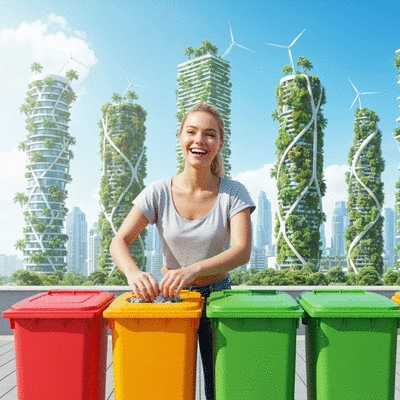
As more businesses and individuals engage in responsible recycling, we can create a robust circular economy that not only benefits the environment but also stimulates the economy. The transformation towards a sustainable UAE is a journey we must all partake in.
Community Recycling Initiatives UAE: Engaging with Local Programs
There are numerous community recycling initiatives across the UAE that aim to enhance public participation in recycling. These programs often include educational workshops, local clean-up events, and collection drives. Getting involved can be a rewarding experience!
- Participate in local clean-up events to help keep your neighborhood clean.
- Attend workshops to learn more about effective recycling practices.
- Join social media groups focused on sustainability and recycling.
By engaging with these local programs, we not only strengthen our communities but also support the UAE's mission for sustainability. Every little effort counts, and together, we can make a significant impact!
Acting on Your Knowledge: Practical Steps for Compliance
Creating Your Recycling Compliance Checklist
To ensure compliance with recycling regulations, creating a checklist can be incredibly helpful. This checklist should outline all necessary actions and guidelines specific to your locality. Here are some key components to include:
- Identify recyclable materials accepted in your area.
- Understand proper waste segregation techniques.
- Stay updated on local recycling events and collection schedules.
Having a checklist in place will simplify your recycling efforts and keep you accountable. You’ll feel more confident knowing you’re doing your part!
Engaging with Local Initiatives and Policies for Better Participation
Engagement with local initiatives is essential for fostering a recycling culture. As a resident of the UAE, you can participate by:
- Volunteering in local waste management programs.
- Joining community discussions on sustainability.
- Sharing information about recycling practices with friends and family.
By actively participating and spreading awareness, we can elevate the importance of recycling in our communities. This collective effort is what will drive real change.
Recycling Tips UAE: Simple Steps for Households
Households can play a significant role in recycling! Here are some straightforward tips:
- Set up clearly labeled bins for different types of recyclables.
- Rinse containers before recycling to avoid contamination.
- Educate family members about what can and cannot be recycled.
Implementing these simple practices at home can make a major difference. Remember, every effort counts! At EcoScrap UAE, we are here to support you in your recycling journey, so don't hesitate to reach out for more information on how to recycle effectively.
Frequently Asked Questions About UAE Recycling Regulations
- What are the main objectives of recycling policies in the UAE?
- The main objectives include minimizing environmental impact, enhancing public awareness, encouraging sustainable practices, and promoting resource recovery.
- Why is compliance with recycling rules important in the UAE?
- Compliance is crucial for environmental stewardship, reducing landfill waste, conserving natural resources, enhancing community health, and avoiding potential fines.
- What role does the UAE Ministry of Climate Change and Environment play in recycling?
- The Ministry is responsible for establishing national recycling targets, promoting public awareness campaigns, monitoring compliance, and enforcing regulations.
- How can individuals engage in community recycling initiatives?
- Individuals can engage by participating in local clean-up events, attending workshops on effective recycling practices, and joining social media groups focused on sustainability and recycling.
- What are some practical recycling tips for households in the UAE?
- Practical tips include setting up clearly labeled bins for different recyclables, rinsing containers to prevent contamination, and educating family members on what can and cannot be recycled.
Recap of Key Points
Here is a quick recap of the important points discussed in the article:
- Recycling regulations in the UAE promote responsible waste disposal and reduce landfill waste.
- Compliance with these regulations is essential for environmental stewardship and community health.
- The UAE Ministry of Climate Change and Environment is key in establishing recycling policies and public awareness campaigns.
- Active participation in local recycling initiatives strengthens community engagement and sustainability.
- Creating a recycling compliance checklist helps maintain effective waste management at home.

